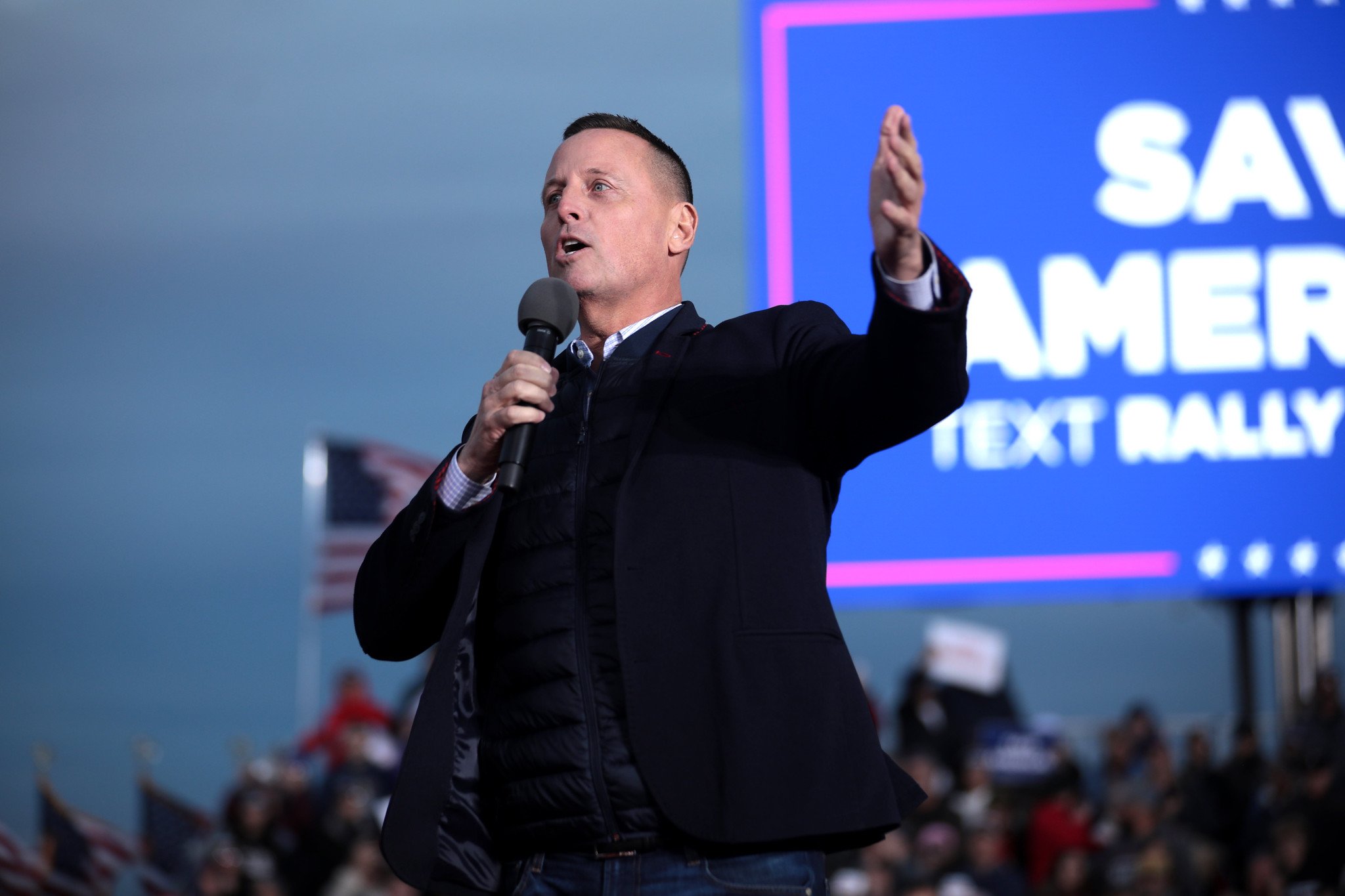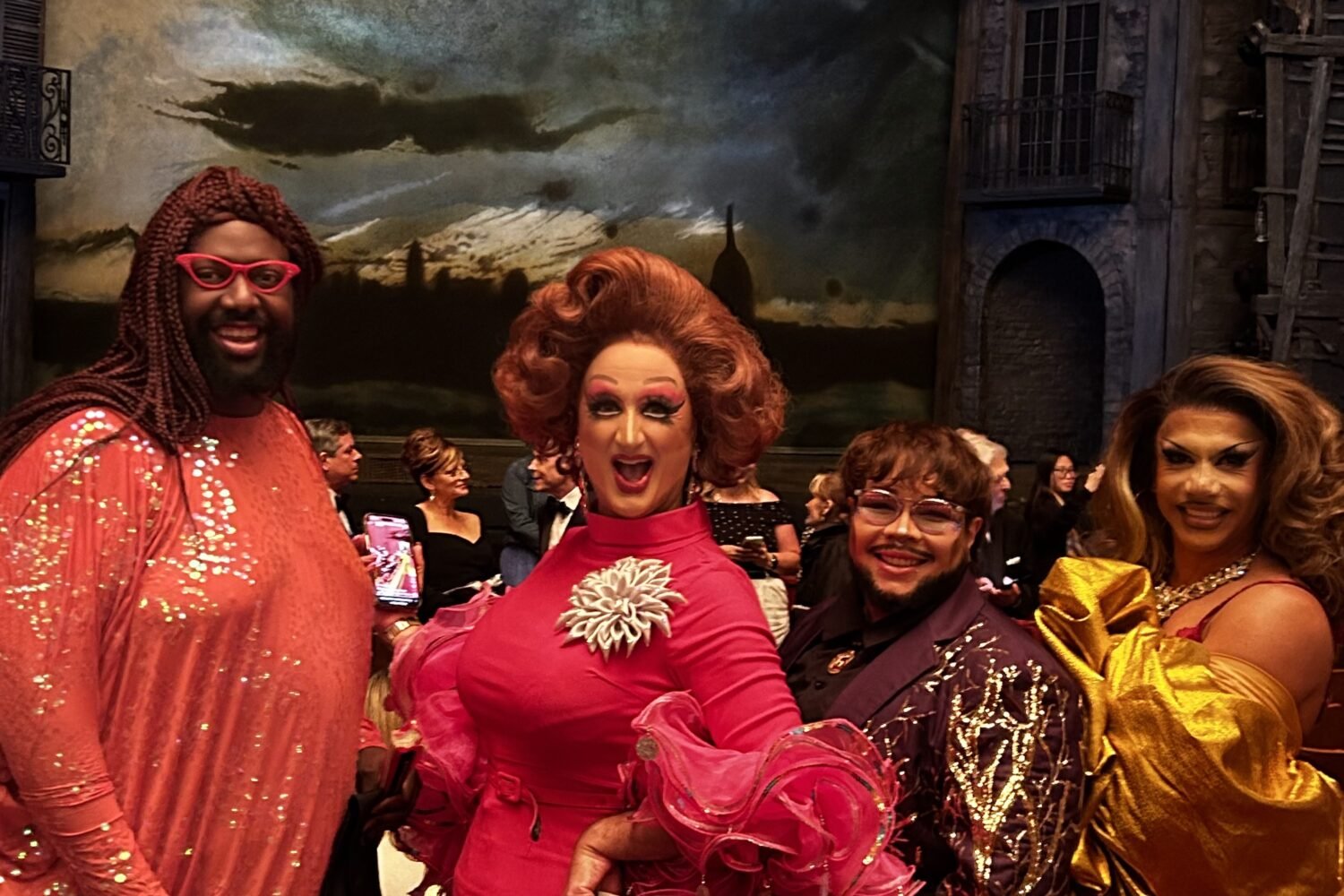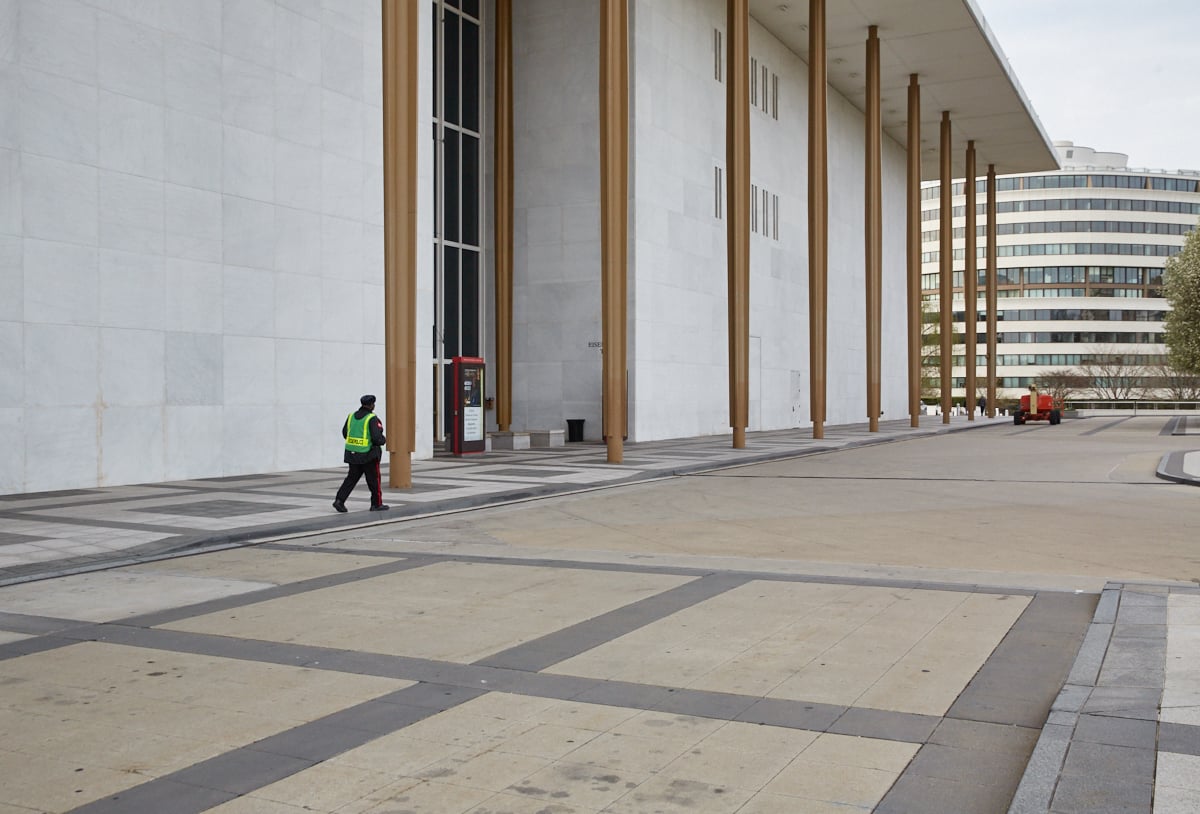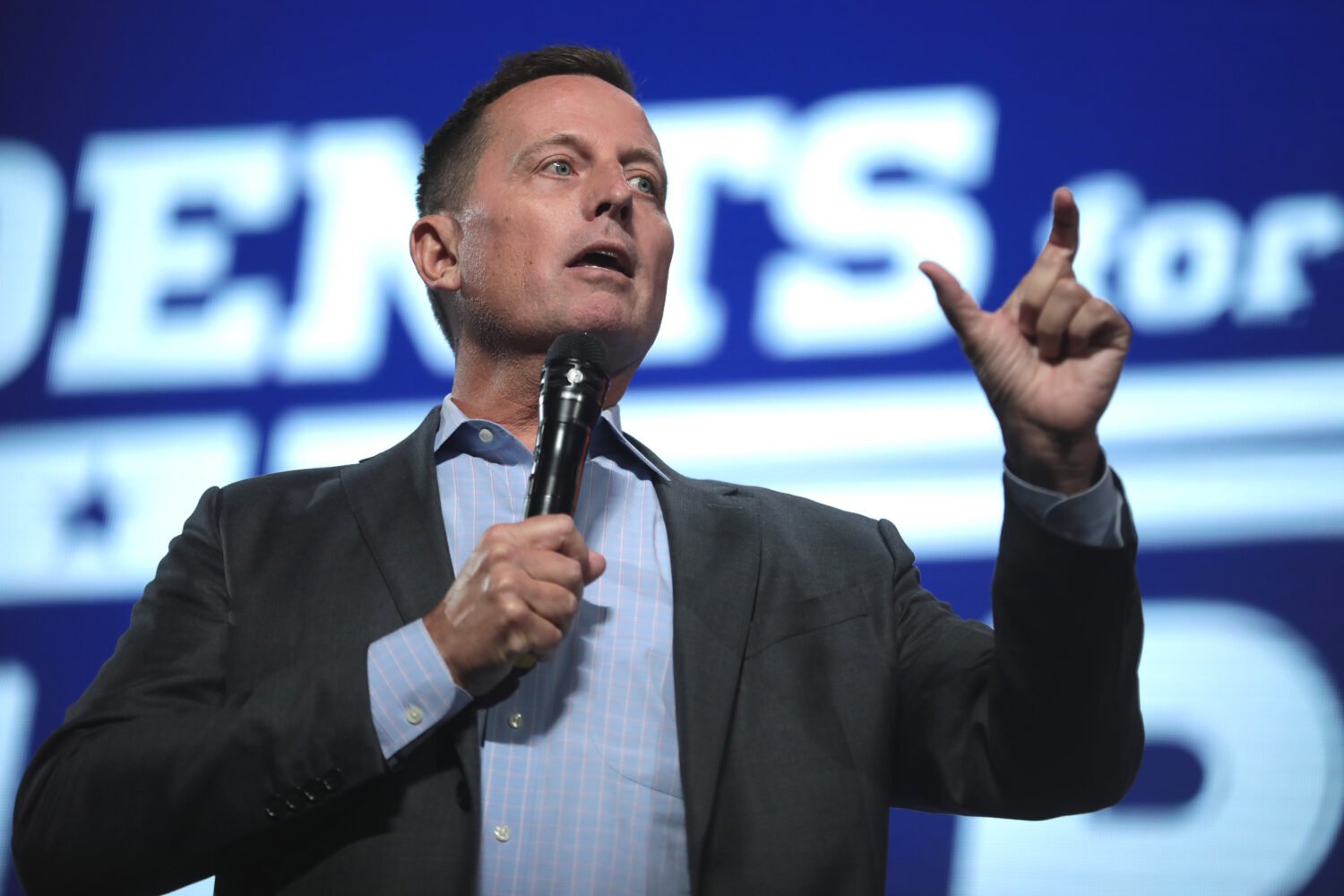After announcing plans last week to gut the Kennedy Center Board of Trustees, President Trump was officially elected chairman of the arts and culture hub Wednesday by a board made up largely of his new appointees. And MAGA darling Richard “Ric” Grenell has been tapped to serve as the arts and culture hub’s interim president—replacing Deborah Rutter, who led the center for a decade before the board voted to terminate her Wednesday.
Back in December, Trump revered Grenell as a “a fabulous person, A STAR” on Truth Social, publicly promising him a position in the new administration—and while it sounds like he’ll spend most of his time behind the curtain “overseeing the daily operations of the Center,” according to Trump, Grenell could have major sway over what programming winds up onstage.
That means “NO MORE DRAG SHOWS, OR OTHER ANTI-AMERICAN PROPAGANDA,” Trump said in a Truth Social post Monday. An NPR analysis found that the Center hosted “a couple of drag brunches in the Center’s rooftop restaurant, a lip-synched Drag Salute to Divas at its free Millennium stage, and a single full-fledged production…Kris Andersson’s Dixie’s Tupperware Party” last year—all of which were advertised to adult audiences. So if Grenell’s most pressing business is to de-drag the Center, he’ll likely have to find some other tasks to fill out his schedule.
Here are five things to know about Grenell (short of his Playbill binder—which better be stacked with plenty of Andrew Lloyd Webber). To quote the president, “RIC, WELCOME TO SHOW BUSINESS.”
1. He is a longtime Trump loyalist—despite a recent snub.
Grenell held several positions in Trump’s first administration. He served as the US ambassador to Germany, a role in which various reports suggest he struggled both professionally and interpersonally (but more on that later).
But Grenell’s highest-profile spot during this era was as Trump’s acting national intelligence director from February to May 2020. He replaced Joseph Maguire, whom Trump fired after the agency’s top election security official advised Congress about Russian interference in the upcoming presidential election. “I think you’ll go down as the all-time great acting ever, at any position,” Trump enthused at Grenell’s final cabinet meeting. Hmm.
Grenell’s contentious first act in the White House burbled into its chaotic denouement during a November 2020 press conference, as the presidential race in Nevada was shaking out in Joe Biden’s favor. At the briefing, Grenell accused the state of voter fraud. But in a May 2024 New York Times interview, two anonymous GOP operatives recounted that Grenell told the Trump team the Nevada election was not actually stolen. He advised them to drum up hysteria to distract the media from calling the state; in other words, “throw spaghetti at the wall,” a term that the aides said Grenell used while making “a theatrical tossing gesture.” (Damn Yankees Kennedy Center revival incoming?)
Reportedly, these fervent displays of loyalty to Trump were all part of a larger ploy for Grenell to land his dream cabinet role: secretary of state. Politico learned that Grenell appeared to have orchestrated a paid social media campaign to garner buzz, allegedly offering contracts with payouts of up to five-figures to MAGA influencers who agreed to post in support of his nomination. (Organizers told Politico that this campaign never actually played out.)
Although Trump selected Marco Rubio for the job, Grenell was reportedly offered other spots in the cabinet—including as director of national intelligence, which Politico reported he declined. Before he got the Kennedy Center gig, Grenell worked for Trump as a “special missions envoy“; he spent the first few weeks of the administration surveying wildfire damage in Los Angeles, negotiating with Venezuela for the release of six American hostages, and posting videos of himself watching immigrants board a plane to be deported.
2. He is a sore subject in Germany.
In June 2018, less than a month into his term as US ambassador to Germany, Grenell told Breitbart News, “I absolutely want to empower other conservatives throughout Europe, other leaders.” This interview sparked backlash from both American and German politicians, who perceived his comments as an indication that he planned to subvert his status as a traditionally neutral ambassador and meddle in his host country’s politics. The ordeal became, arguably, the defining scandal of his service in Trump’s first administration.
According to a 2019 article by Der Spiegel, Grenell accused the publication of anti-Americanism after one of its writers was exposed for fabricating his reporting. Spiegel journalist Konstantin von Hammerstein wrote that Grenell was “justifiably angry, but he didn’t stop there”—Grenell went on to claim that Spiegel reporters regularly failed to reach out to the US embassy for comment before publishing stories. However, according to an email exchange made public by Der Spiegel, Grenell refused to answer a list of written questions provided by von Hammerstein, responding in part, “All seven of your questions are based on fabricated stories that are not true.”
Because Grenell did not sit down for an interview with Der Spiegel, the magazine instead “focused its reporting on conversations with more than 30 sources who have come into contact with Grenell”—including cabinet members, legislators, and both American and German diplomats.
“A majority of them describe Grenell as a vain, narcissistic person who dishes out aggressively, but can barely handle criticism,” reporter Konstantin von Hammerstein wrote. “His brash demeanor, some claim, hides a deep insecurity, and they say he thirsts for the approval of others.”
Grenell also served as a special envoy for Serbia and Kosovo. In early 2020, he brokered negotiations that led to both countries reinstating flights to one another’s capital cities, although the deal apparently played a part in fueling corruption allegations against Kosovo’s then-prime minster, who was ousted shortly after.
3. He and the Republican Party go way back.
Back in 1995, the Washington Post profiled a 28-year-old Grenell, who was then working as a press secretary for Republican Representative Mark Sanford of South Carolina. In the article, Grenell is characterized as the starry-eyed face of the new Republican party—a former Bush-Quayle campaign staffer still reeling from Bill Clinton’s first win, siphoning his endless energy from a childhood memory of pulling the voting booth lever for Gerald Ford with his dad.
According to the Post, Grenell boasted all the trappings of a tried-and-true conservative: Despite an admitted affinity for Hillary Clinton, Grenell took pride in his Christian upbringing, openly aspired to preppy aesthetics, and mused about the failings of liberal economic ideology, saying, “Democrats believe government programs are the answer. Taxes get people off the hook and make them believe they’ve already made their contribution. A check won’t solve the problems of a welfare mother.”
Grenell’s passionate allegiance to the Republican cause eventually caught the attention of George W. Bush, who named him a US State Department spokesperson for the United Nations in 2001. In this role, Grenell advised four different US ambassadors until the end of his tenure in 2008.
Following his time in the Bush administration, Grenell got to work as a regular Fox News contributor, where he still appears occasionally. In 2012, he became the first openly gay person to serve as a Republican presidential candidate’s spokesperson, working with Mitt Romney on foreign policy communication. (He resigned from the campaign six months before the election—some prominent social conservatives were fiercely critical of Romney welcoming Grenell to his team.)
4. He has a rich digital footprint.
Back when Grenell was advising Romney, he caught heat for a slew of decidedly nasty social media posts. Although he cleared them from his timeline, these tweets—directed mainly at prominent women—came up again in 2o18 when he was nominated to the German ambassador role. Sen. Bob Mendendez (eek) led the Democratic charge against Grenell’s confirmation, reading a selection on the Senate floor: Grenell tweaked Michelle Obama for “sweating on the East Room carpet” during a Biggest Loser workout she hosted at the White House, advised television host Rachel Maddow to “take a breath and put on a necklace,” and ridiculed Callista Gingrich, then the US Ambassador to the Holy See, for standing around like “wife #1” before polling his followers on whether they think her hair “snaps on.”
During his confirmation hearing, Grenell apologized for these remarks, saying, “Unfortunately, there are times where what was intended to be humorous, turned out to be not so humorous. And again, that was never my intention and I regret that.”
But Grenell still has his fun on social media. This week, he called Voice of America’s chief national correspondent Steve Herman “treasonous” for his reporting on recent lawsuits filed against the Trump administration related to the gutting of USAID.
5. His cultural passions are hard to pin down.
View this post on Instagram
Now that Grenell is going to head up the heart of America’s national arts and culture scene, he’s going to need to get more transparent about his own sensibilities. A scrub of his extremely active Instagram spotlights only a few of his live-entertainment excursions—for example, attending a Jennifer Holliday show and making an appearance at a Las Vegas MMA fight.
Other insights into his preferences can be gleaned mostly through some obituary-style posts he made, including tributes to singer-actress Olivia Newton-John and TV star Suzanne Somers, who was his close friend. Perhaps most illustrative of his tastes, though, was an apparently AI-generated or otherwise edited image I stumbled upon of Trump playing guitar with the late Jimmy Buffett—who often campaigned for Democratic politicians and spoke out against Trump during his final years.
















